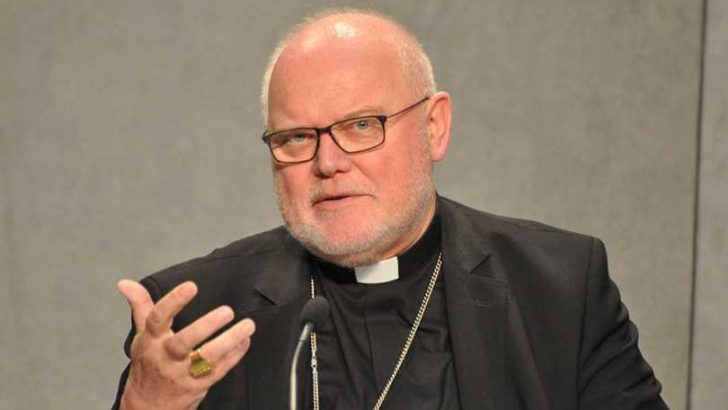In much of Western civilisation, we have arrived at a juncture where questions of the Churches’ identity and political relevance need to be examined and discussed in a serious and fresh way.
Dr Cornelius Casey
The Bishop of Cloyne, William Crean, said recently, “Ireland through its political and media establishments seems determined to eliminate the engagement of the Catholic Church in the public sphere”. Whether this is a fair assessment is a good question, but for sure it articulates a deep worry shared by a great many people. Church voices, once powerful in public debate, now struggle to get a word in.
In much of Western civilisation, we have arrived at a juncture where questions of the Churches’ identity and political relevance need to be examined and discussed in a serious and fresh way. Do Churches have a distinctive role in the public square anymore? Is the Catholic Church, along with other Christian Churches, just another group fighting for a place in society, seeking to further their own interests or do Christian Churches have a different standing? A claim to be heard?
This is background to a series of lectures and reflections entitled ‘The Role of Church in a Pluralist Society: Good Riddance or Good Influence?’ The event takes place in a couple weeks (June 22 – 24) in Trinity College Dublin. It is organised by the Loyola Institute at Trinity College. We wanted to bring together some very serious international experts to discuss the creative intersection of society, Church and theology in the contemporary context.
Directions
The question in the title is meant to point in two directions. We ask, ‘what do we mean by a pluralist society?’ alongside ‘what is the Churches’ claim and identity therein?’ Probably we’d all sign up for and feel very happy with the notion that we live in a pluralist society. How pluralist are we? We worked on this conference at a time when Syrian migrants were flooding into Europe and Europe has been putting up barriers to keep them out. How pluralist are we really?
There is also a strong influential view (even an ideology) which claims that when it comes to public debate and policy making in a society like ours, the only way is to drain out all the distinctive religious traditions, and find a common denominator language, which will be a completely secular language. That is all very fine, but it is the opposite of pluralism. If I’m a Muslim, if I’m a Catholic, if I’m a Lutheran I will have things to say that come from those traditions. Isn’t there a danger that people coming from a religious perspective get written off, or simply don’t get listened to?
We are delighted that one of our main speakers is Terry Eagleton, one of the most renowned intellectuals in the English speaking world. The title of his paper is ‘Against Pluralism’. While we have no idea what Terry is going to say, his title might suggest that, in talking of a pluralist society, we have too easy a comfort language.
Conflicts
We may be masking deeper conflicts that we should be looking at, and dealing with.
Cardinal Reinhard Marx, Archbishop of Munich and Freising, currently President of the Commission of the Bishops’ Conferences of the European Community (COMECE), will speak on ‘The Church and the Challenge of Freedom’. Catherine Pepinster Editor of The Tablet, and a frequent contributor to the Guardian will speak on ‘The Grit in the Oyster – the Catholic Church and the British Government’s domestic policies, (in the week when the Brexit votes takes place). There are 15 main speakers, all leaders in their field, and more than 30 parallel papers.
The issues are important and alive. In the same week that Bishop Crean made the comments quoted above, the Archbishop of Tuam, Michael Neary, said “The Church is no longer the dominant intellectual influence in society, can no longer count on cultural or political support and is frequently dismissed and disregarded”. The event is for all concerned about the role of the Church as we move forward into the 21st Century.
*Dr Cornelius Casey of the Loyola Institute is an organiser of ‘The Role of Church in Pluralist Society: Good Riddance or Good Influence?’ in the Loyola Institute, Trinity College Dublin, from June 22 to 24. Details and booking at www.LoyolaTCD.com or phone 01 896 4790.


 Cardinal Reinhard Marx.
Cardinal Reinhard Marx. 